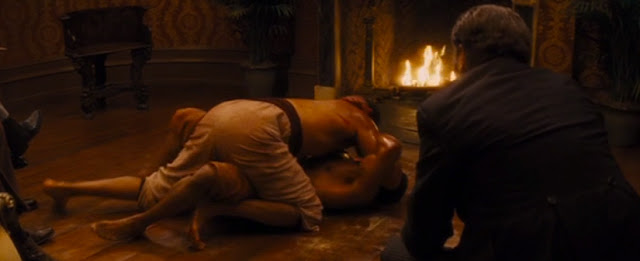As I began reading Silvana Paternostro's memoir My Colombian War: A Journey through the Country I Left Behind, I was unable to abstain myself from feeling a familiarity in her language. It is not a familiarity that I praise. Instead it is a feeling of familiarity and knowing that I dislike. I felt I had read texts written with a very similar voice and language at school. This is no coincidence: Paternostro, most of my classmates and I are Colombian. Still, I felt this was not the way I want to write like. I fell its too Colombian for a memoir written in English. Yet, this is the essence of the memoir. My Colombian War is not meant to be a regular memoir written by an American. It is a Colombian memoir written in English by a Colombian woman that was swayed by the American culture and language.
Paternostro's memoir caught my attention because her stories have a lot to teach me. Like her, I am curiously interested journalism so I thought her story my interest me. This story is one about the blending of two cultures through journalism, therefore there is much to learn for me. Yet, I could not resist from thinking how Paternostro wrote her memoir. After some research I found no indications that her work was first written in Spanish and then translated to English. This is the untouched voice of Paternostro's Egnlish. Even though she has lived most of her life in the U.S the Colombian influence in her narration is obvious. Paternostro declares, "the life of freelance journalism is made of that: looking for ideas that can become stories," (p. 6). In no way I am saying this is incorrectly written, but I feel skeptical as I read it. I can perfectly imagine hearing a Colombian saying what Paternostro writes, but when I read it in English I feel it does not correspond to the language. I imagine someone saying, "de eso se trata el periodismo. De buscar ideas que se pueden convertir en histories," but I feel awkward imagining someone saying it in English.
I have read very little of Paternostro to be judging her writing, but enough to question my questionings. Perhaps my questions arise from trying to think in English when I actually think in Spanish, therefore I feel identified with Paternostro's writing. At least I have identified her Colombian roots. If this problematic is one that Paternostro also faces remains a mystery for me, but I feel her writing has a noticeable influence from Colombian speaking manners. Paternostro's extensive explanations and casual comparisons such as "The visit to Cartagena in 1996 had left me curious and hungry and I had started doing what I call "a little research", similar to what happens when you start developing a crush on someone," (p. 2) feel very familiar to me. It may be because I am accustomed to hearing and speaking in similar ways, but I feel confused with her descriptions. These are things I have seen in Spanish, but not in English. Not in text or speech.

